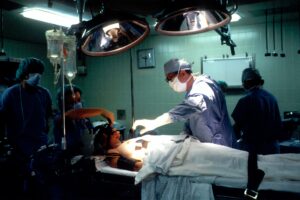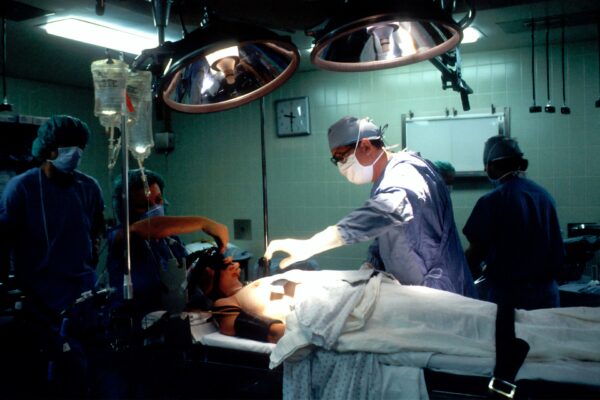
Thyroid cancer is the seventh most common cancer in women and claims the lives of roughly 2,200 Americans per year. Until very recently, thyroid cancer was one of the most quickly increasing cancer diagnoses in the US. Better screening has aided early detection, but the various types of thyroid cancer still pose a health risk to thousands of Americans each year.
What Is Thyroid Cancer?
Thyroid cancer occurs when malignant cancer cells develop in the tissues of the thyroid gland. This glad plays a critical role in producing hormones that help regulate metabolic functions of the body, including:
- Controlling heart rate
- Controlling body temperature
- Controlling calcium levels in the blood
- Controlling the metabolic rate
- Warning Signs of Thyroid Cancer
A lump, or nodule, is often the first sign of trouble. Luckily, more lumps are not cancerous though they may have adverse implications for how effectively your thyroid glad produces hormones. In most cases, doctors will investigate nodules with an ultrasound and/or a biopsy. Testing also includes analyzing hormone levels in the blood to look for other types of thyroid disease.
Three Types of Thyroid Cancer
While there are some childhood-specific variations of this cancer, most adults with the disease will develop one of three types.
Differentiated Thyroid Cancer – Also known as papillary thyroid cancer and follicular thyroid cancer, this type of cancer is considered the most treatable form of the disease and can be cured in most cases.
Poorly Differentiated Thyroid Cancer – Also known as anaplastic thyroid cancer, this variation is much less common. In most cases, tumors grow quickly and spread faster which results in a lower rate of survival.
Medullary Thyroid Cancer – This variation of thyroid cancer impact the C-cells of the thyroid, which are primarily responsible for creating a hormone that regulates calcium levels in the bloodstream.
Who Is Most At Risk?
There are several risk factors for thyroid cancer. Thyroid cancer is considered primarily a hereditary type of cancer, so you may notice family history is a common theme.
Populations most at risk of thyroid cancer are:
- Aged 25 – 65
- Female
- Possibly exposed to radiation as a child
- A history of goiters (personal or family history)
- A family history of thyroid disease or cancer
- Asian
Thyroid Cancer Survival Rate
The survival rate of thyroid cancer depends on many factors, but the most important is how early the nodule is identified. Early detection increases the chance that the thyroid tumor remains localized, which means it hasn’t spread from the thyroid itself. When the tumor is regional, or has spread to nearby parts of the body, the survival rate decreases. When cancer of any kind has spread to many parts of the body, it is described as distant.
Papillary thyroid
| SEER Stage | 5-Year Relative Survival Rate |
| Localized | near 100% |
| Regional | 99% |
| Distant | 75% |
Follicular thyroid
| SEER Stage | 5-Year Relative Survival Rate |
| Localized | near 100% |
| Regional | 98% |
| Distant | 63% |
Anaplastic thyroid
| SEER Stage | 5-Year Relative Survival Rate |
| Localized | 34% |
| Regional | 9% |
| Distant | 4% |
Can Thyroid Cancer Be Prevented?
Most people who develop thyroid cancer have no known risk factors. The only well-established environmental cancer risk is radiation exposure, which has been greatly reduced with government regulation and workplace safety protocols.
How Does Thyroid Cancer Make You Feel?
Early signs of thyroid cancer include a lump in the neck, sore throat or difficulty swallowing, and some degree of vocal hoarseness. Some patients note their voices become lower or rough. Later symptoms can also include persistent neck pain.
Does Thyroid Cancer Make You Tired?
Many patients note persistent fatigue or unexplained tiredness. Unfortunately, many illnesses and conditions cause fatigue, which makes its usefulness as thyroid cancer murky.
Early Detection Makes All The Difference for Cancer Patients
The survival rates of all three types of thyroid cancer are substantially better the earlier the disease is detected. At Less Cancer, we’re advocates for expanded access to healthcare to prevent cancer and many other diseases. We can do more; help us by getting involved and donating today.


Leave A Comment
You must be logged in to post a comment.